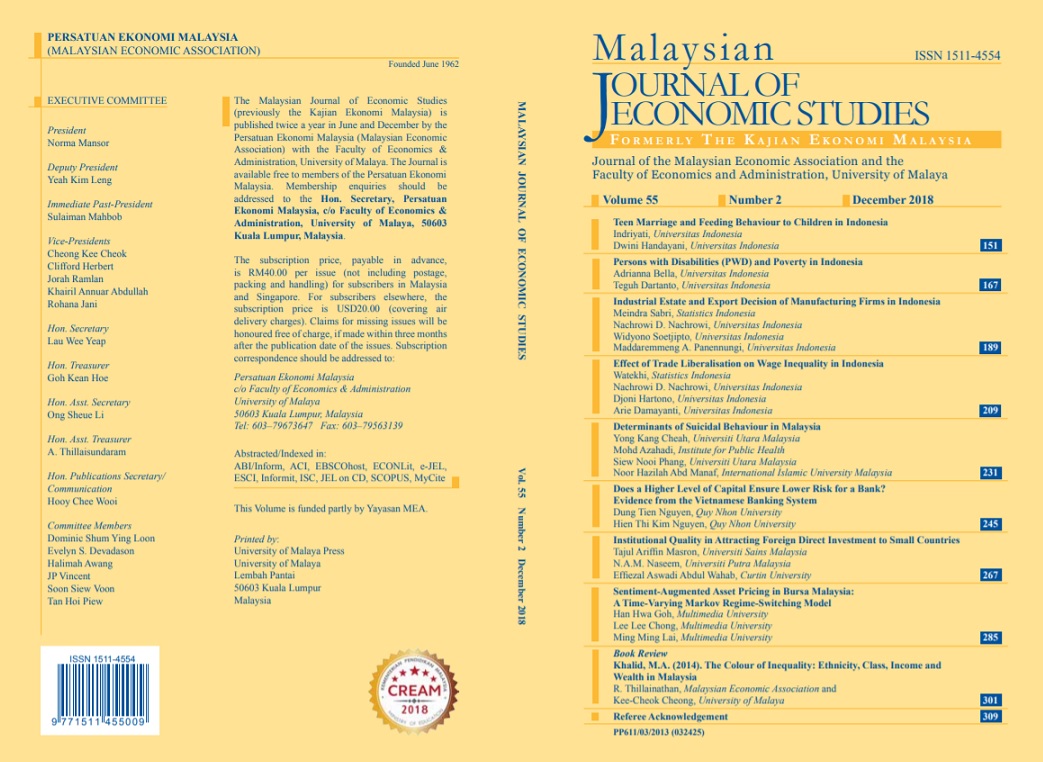Persons with Disabilities (PWD) and Poverty in Indonesia
DOI:
https://doi.org/10.22452/MJES.vol55no2.2Keywords:
Inclusive development, Indonesia, persons with disabilities, povertyAbstract
There is an urgent need to provide an evidence-based study to support and mainstream PWD on the development agenda in Indonesia due to low prioritisation of poverty eradication of PWD. Thus, this study aims at examining the impacts of disability, types of disability and causes of disability on household’s poverty status and household’s poverty gap index. Applying Logistic and Tobit regressions, this study confirmed that disabled-headed households are more likely to become poor by 1.3 percentage points and have deeper poverty gap index by 2.6 percent. Household with a visually impaired household head is less likely to be poor compared to other disabled-headed households, while one that has a household head with self-care problem tends to have higher probability of falling into poverty. Moreover, a household in which the household head has congenital disability (disability at birth) has higher probability of being poor by 4.8 percentage points and has deeper poverty gap index of about 7.8 percent.

